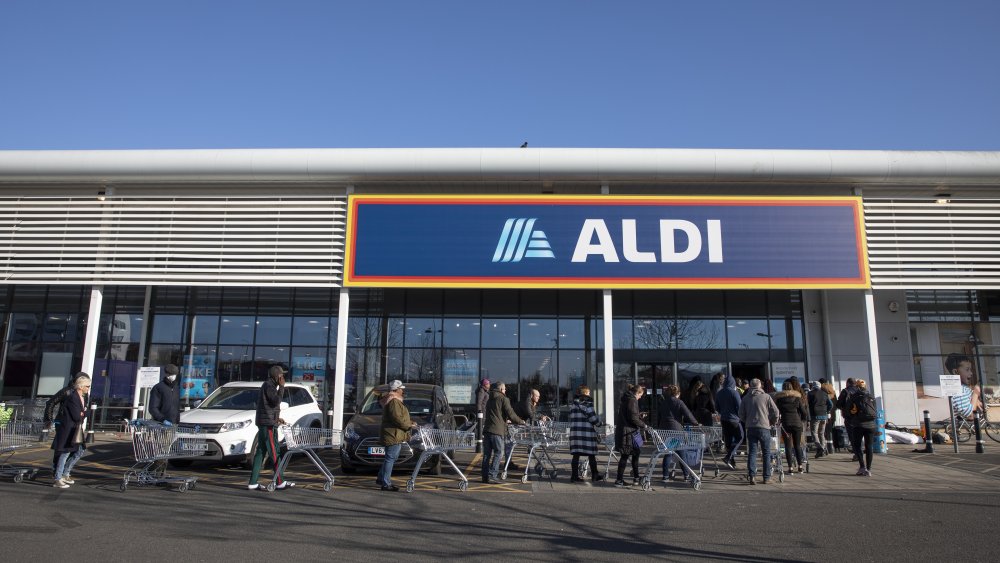The Reason Aldi Can Keep Its Prices So Low During The Pandemic
While practices like limited hours, bare-bones staffing, and savvy operation decisions have long been a part of Aldi's well-documented money saving strategies, the company has also made headlines for its pandemic-related generosity, such as employee wage hikes to reward frontline workers, as well as community donations.
Lately, it has earned a further boost in consumer approval for its beloved discount prices, especially as other grocery stores' prices increase for essentials like eggs, meat, and produce due to COVID-19 concerns. According to WHAS11, these hikes are caused by several factors, including the greater "labor costs, lower production rates, and the higher amount of cleaning and sanitizing" that have been necessary in recent months.
However, this week, Aldi addressed the elephant in the room regarding the now-sensitive topic of pricing on the heels of The Bureau of Labor Statistics announcing that U.S. unemployment has ballooned to 14.7 percent, with a loss of 20 million-plus jobs in April alone (via Forbes). With these factors in mind, Aldi released a letter to its customers called "Our Price Commitment to You."
Inside Aldi's letter to customers on pricing
Jason Hart, CEO of Aldi U.S., wrote the letter, the latest in its series of regular updates provided since March for COVID-19-related changes. He wrote, "I want to assure you that one thing will never change at Aldi: our commitment to offering you the lowest prices, every day .... Our promise to you is that Aldi will continue to offer the lowest possible price every time you shop for groceries."
Hart notes that the company "has been recognized as the value leader among U.S. grocery stores by an independent Market Force Information survey of U.S. consumers" for the last nine years in a row, and despite shifts in the market, the company seeks to continue that streak. He credits "some of the best, most innovative suppliers" and "our simple and efficient approach to grocery retailing" for the ability to pass low prices to the consumer, but he also vows to look for more ways to pinch pennies — while retaining necessary health and safety measures in stores.
Consumers are concerned about rising grocery store prices
As one of the largest (and still growing) grocers in America, Aldi has staked its reputation on being a "disrupter" in the supermarket scene, attracting a "cult-like following" for its bargain-basement prices, especially in the wake of the late-2000s recession (via CNN).
That achievement is more important than ever as unemployment soars and grocery store prices have hit their highest numbers in 40 years (via Store Brands). In fact, today's shoppers have shown a willingness to jump ship in the search for lower-priced goods: Grocery Dive reports that 20 percent of them have found a "new primary store" during the pandemic for reasons including "more affordable groceries."
Experts point out that Aldi has historically done well in tough financial times, thanks to its "low-cost structure behind operational efficiencies, a tight assortment dominated by private label goods, and an everyday low-price positioning" (via Winsight Grocery Business). In other words, the very moves that made Aldi a major player in the grocer landscape will likely continue to pay off for the chain — and for financially strapped customers who are seeking to cut costs anywhere they can.


